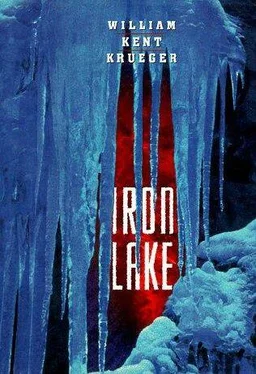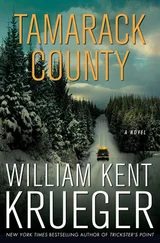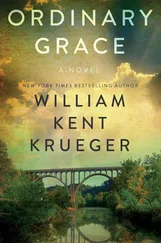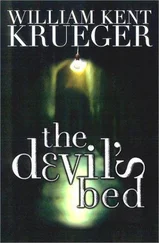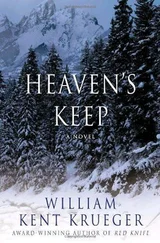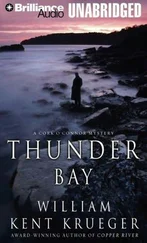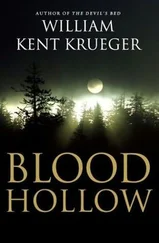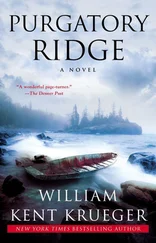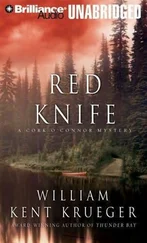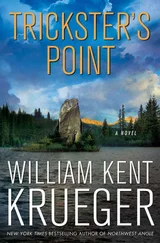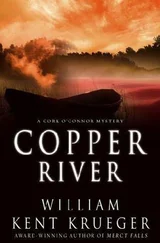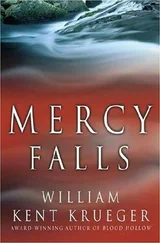William Krueger - Iron Lake
Здесь есть возможность читать онлайн «William Krueger - Iron Lake» весь текст электронной книги совершенно бесплатно (целиком полную версию без сокращений). В некоторых случаях можно слушать аудио, скачать через торрент в формате fb2 и присутствует краткое содержание. Жанр: Криминальный детектив, на английском языке. Описание произведения, (предисловие) а так же отзывы посетителей доступны на портале библиотеки ЛибКат.
- Название:Iron Lake
- Автор:
- Жанр:
- Год:неизвестен
- ISBN:нет данных
- Рейтинг книги:3 / 5. Голосов: 1
-
Избранное:Добавить в избранное
- Отзывы:
-
Ваша оценка:
- 60
- 1
- 2
- 3
- 4
- 5
Iron Lake: краткое содержание, описание и аннотация
Предлагаем к чтению аннотацию, описание, краткое содержание или предисловие (зависит от того, что написал сам автор книги «Iron Lake»). Если вы не нашли необходимую информацию о книге — напишите в комментариях, мы постараемся отыскать её.
Iron Lake — читать онлайн бесплатно полную книгу (весь текст) целиком
Ниже представлен текст книги, разбитый по страницам. Система сохранения места последней прочитанной страницы, позволяет с удобством читать онлайн бесплатно книгу «Iron Lake», без необходимости каждый раз заново искать на чём Вы остановились. Поставьте закладку, и сможете в любой момент перейти на страницу, на которой закончили чтение.
Интервал:
Закладка:
William Kent Krueger
Iron Lake
PROLOGUE
Cork O’Connor first heard the story of the Windigo in the fall of 1965 when he hunted the big bear with Sam Winter Moon. He was fourteen and his father was dead a year.
Sam Winter Moon had set a bear trap that autumn along a deer trail that ran from the stream called Widow’s Creek to an old logged-over area full of blueberries. He’d found scat at the creek and along the trail and in the blueberry meadow when the berries were ripe. The trap was made as it had been in old times. Against a tree, Sam built a narrow enclosure of branches with a single opening. Over the entrance he suspended a heavy log secured to a spring pole. The trap was baited with a mash of cooked fish, fish oils, and a little maple syrup. It was the first time Sam had ever built a bear trap-a nearly lost Ojibwe tradition-and he’d invited Cork to help him with the process. Cork had no interest in it. Since his father’s death, nothing interested him. He figured Sam’s invitation had nothing to do with both of them learning the old ways together. It was just another good-intentioned effort to make him forget his grief, something Corcoran O’Connor didn’t want to do. In a way, he was afraid that to let go of the grieving would be to let go of his father forever. Still, out of politeness, he accepted Sam Winter Moon’s offer.
Late in the afternoon, they found the trap sprung, but the bear was not in it. They could see where the animal had fallen, slammed down by the weight of the great log, which, when they’d hauled and set it, Sam had calculated at over three hundred pounds. The log should have broken the bear’s back. Any normal black bear should have been there for them, pinned under the log, dead or almost dead. The trap was sprung. The log had fallen. But the bear had shrugged it off.
Sam Winter Moon turned to the boy gravely. “I expect it’s hurt,” he said. “I got to go after it.”
He looked away from Cork and didn’t say anything about the boy going.
“A bear like that,” Cork said, “a bear that can bounce a tree off his back, he’d be worth seeing.”
Sam Winter Moon knelt and ran his hand over the deep indentation the animal’s great paws had made in the soft ground. “Risky,” he said. He looked up at the boy. “If you come, you got to do exactly as I say.”
“I will,” Cork promised, feeling excited about something for the first time in a year. “Exactly.”
They fasted the rest of the day and breathed in the smoke of a cedar fire. At first light next morning, they blackened their faces with the cedar ash, a sign to the spirits of the deep woods that they had purified themselves. Sam tied back his long black-and-gray hair with a leather cord ornamented with a single eagle feather. They smoked tobacco and red willow leaves mixed with powdered aster root as a hunting charm, then covered themselves with tallow made of various animal fats to disguise their scent from the bear. In a small deer-hide sack that Sam hung on his back, he packed more tallow, matches, a whetstone, and a box of 180-grain cartridges for his rifle. He looked a little doubtfully at the cartridges. His was a. 30–06 bolt-action Winchester. Fine for deer and small bears, he told Cork. But a bear like the one they were after, a bear that could shrug off a tree, that was something else. He gave Cork a canvas pack with bedrolls, cooking utensils, cooked wild rice, coffee, salt, and deer jerky. Finally he put in several long leather cords so that if they were given the bear, they could lash its body to a travois and cart it to a road where he could retrieve it with his truck. He hung his Green River hunting knife on his belt and slung his rifle over his shoulder.
At the sprung trap, they made a circle, looking for vegetation flattened in the bear’s passage. Sam found a sign, a clear line where the fallen birch leaves were pressed into the soft earth underneath, and they followed north, where the bear had gone.
Every fall Sam Winter Moon killed one bear. The smoked bear meat he shared with the other people on the Iron Lake Reservation, especially the elders who could not hunt or trap anymore but who still enjoyed the taste of the fat, richly flavored meat. He also shared the meat with Cork’s family. Cork’s mother was half Anishinaabe, and his father, although he was white, had been Sam’s friend for many years. The skins Sam sometimes sold for bounty, but more often he kept them for himself. He was grateful to the black bears for the meat they gave to him and the people of his band, but he told Cork, as they followed the trail that fall, that he would be grateful even for just a glimpse of this great animal who’d shrugged off the log trap as if it were no more than a small bothersome thing.
Bears, Sam cautioned him, were the most difficult animals of the woods to track and to kill. They had decent eyes, good ears, and the best nose of any animal alive. They were smart, too. And if they were hurt, there was no thing a man would ever go against that was more dangerous. He loved hunting the bears. He appreciated the ritual of the hunt that joined hunter and hunted together with the land that was the mother of both man and bear. He enjoyed the challenge of tracking, using his own knowledge of the animal and the woods instead of hunting with dogs the way white men did.
Sam stopped occasionally to look carefully at the soft earth or vegetation. Near noon, they found a stump where the bear had dug for grubs, and later a branch from an oak broken off to get the acorns.
The sky was clear blue, the air cool and still, the great woods full of the russet and gold of late fall. They moved quickly and Cork was filled with excitement. His stomach growled loudly from the fasting and he rustled the dry leaves as he walked. Sam said not to worry too much about the noise he made. A bear, especially a big one, would not be much concerned with sounds. The smell of a man, that was the thing to keep from a bear. Sam hoped they would be able to come at the animal from down-wind. If not, he hoped the tallow would mask them.
They were led into the late afternoon. Cork realized he had no idea where they were in the great forest. He asked Sam if he knew these woods, and Sam said no. They’d passed out of reservation land and were now in what the white men called the Quetico-Superior Wilderness. This part of the forest Sam had never been through. But he didn’t seem worried. At sunset they stopped and built a fire at the edge of a stream. Sam heated the wild rice, which they ate with the deer jerky. When the sky turned black and full of stars and the chill of the fall night crept over them, he made coffee and poured it into tin cups for them to drink.
“Will the bear get away while we sleep?” Cork asked.
Sam settled the old coffeepot in the embers at the fire’s edge. He stirred the fire with a stick. “The bear’s got to sleep, too. We’ve been guided well today. I think that’s a good sign.” He paused while the flames sprang up around the end of the stick. “But, you know, I been thinking. This bear’s moving pretty good. Doesn’t seem like that log hurt it much after all. A bear like that, well-” He glanced at the boy. “I been thinking it’d be a shame to kill it. If we even could.”
“I’d like to see it,” Cork said.
“Me, too.” Sam smiled. “And I believe we will.”
Suddenly the old pot hopped and slid across the coals, startling Cork so that he jerked and spilled his coffee.
Sam Winter Moon looked around them, then up at the sky. His voice dropped to a whisper. “A Windigo’s passing close by.”
Cork wiped at his leg where the coffee had burned him through his jeans. “What’s a Windigo?”
In the firelight, Sam Winter Moon’s dark eyes were deadly serious and a little afraid.
Читать дальшеИнтервал:
Закладка:
Похожие книги на «Iron Lake»
Представляем Вашему вниманию похожие книги на «Iron Lake» списком для выбора. Мы отобрали схожую по названию и смыслу литературу в надежде предоставить читателям больше вариантов отыскать новые, интересные, ещё непрочитанные произведения.
Обсуждение, отзывы о книге «Iron Lake» и просто собственные мнения читателей. Оставьте ваши комментарии, напишите, что Вы думаете о произведении, его смысле или главных героях. Укажите что конкретно понравилось, а что нет, и почему Вы так считаете.
